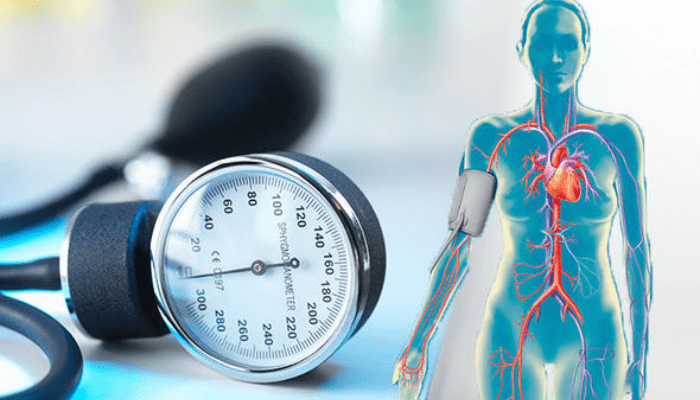High blood pressure: what is it and how to control it?
Hypertension, or high blood pressure, is a chronic medical condition that affects millions of people around the world. It is characterized by increased blood pressure in the arteries, which can lead to serious health problems such as heart disease, strokes and kidney failure.
Although hypertension is a common condition, it is often misunderstood and underdiagnosed. There are several risk factors for developing hypertension, including age, family history, nutrient-poor diet, being overweight, and lack of exercise.
It is important to understand what high blood pressure is and how it can affect the long-term health of the body. If you have high blood pressure or are at risk of developing it, speak with a healthcare professional to discuss available prevention and treatment options.
What is high blood pressure?
High blood pressure is a complex condition involving many factors, including the stiffness of the arteries, cardiac output, blood viscosity and peripheral vascular resistance. High blood pressure occurs when these factors combine to increase blood pressure in the arteries.
There are several types of high blood pressure, including essential hypertension, secondary hypertension, and malignant hypertension. Essential hypertension is the most common form of hypertension and is usually caused by lifestyle factors such as a nutrient-poor diet, lack of exercise, and smoking.
What causes high blood pressure?
Hypertension, or high blood pressure, is a common medical condition that can have many causes. Among the main causes of high blood pressure, we can highlight:

- Excessive salt consumption: Salt contains sodium, a mineral that, in excess, can cause the body to retain fluid and increase blood pressure.
- Overweight and obesity: Excess weight can strain the heart and increase the resistance of blood vessels, which can lead to increased blood pressure.
- Sedentarism: lack of physical activity can lead to problems in the circulatory system, such as increased blood pressure.
- Smoking: substances present in cigarettes can damage the walls of blood vessels, making them narrower and increasing blood pressure.
- Stress: Chronic stress can increase the production of hormones that affect the circulatory system, which can lead to increased blood pressure.
It is important to remember that high blood pressure often has no symptoms and may go unnoticed.
What happens to the body when the pressure is high?
When blood pressure is high, the heart has to work harder to pump blood around the body, which can cause artery walls to thicken and stiffen. Over time, this overload can lead to a host of health problems, including heart disease, stroke, and kidney damage.
In addition, high blood pressure can affect other systems in the body. For example, increased blood pressure can affect vision, causing damage to the retina and vision in general. It can also lead to hearing problems by causing damage to the inner ear. In addition, high blood pressure can affect the nervous system, causing headaches, dizziness and memory problems.
What is the relationship between hypertension and diabetes?
High blood pressure and diabetes are two health conditions that often go hand in hand. People with diabetes have a higher risk of developing high blood pressure and vice versa. The relationship between the two conditions is thought to be due in part to shared risk factors such as obesity, physical inactivity, and smoking.
Here is a list of the differences between high blood pressure and diabetes:
- Causes: High blood pressure is usually caused by a combination of genetic factors, lifestyle and unhealthy diet. Diabetes is caused by the body’s inability to properly produce or use insulin, a hormone that regulates blood sugar.
- Symptoms: High blood pressure usually has no symptoms, but it can cause headaches, dizziness and vision problems in more severe cases. Diabetes can have symptoms such as excessive thirst, constant hunger, frequent urination, weight loss and fatigue.
- Diagnosis: High blood pressure is diagnosed by measuring blood pressure, while diabetes is diagnosed through a blood test that measures blood sugar levels.
- Complications: High blood pressure can lead to a number of health problems, including heart disease, stroke, and kidney damage. Diabetes can lead to problems such as heart disease, nerve damage, kidney problems and diabetic retinopathy.
- Treatment: Treatment of high blood pressure usually involves lifestyle changes, such as a healthy diet and exercise, as well as medications prescribed by a healthcare professional. Diabetes treatment usually involves medication to help regulate blood sugar levels, as well as lifestyle changes such as a healthy diet and exercise.
When a person has both high blood pressure and diabetes, this can be particularly dangerous as it significantly increases the risk of complications such as heart disease and stroke. Additionally, controlling blood pressure and blood sugar is essential to managing both conditions.

Deixe um comentário